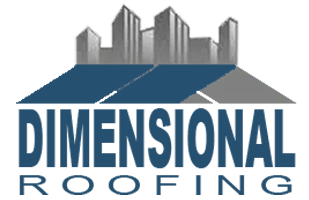
Real Estate Owner, Asset, or Property Manager?
Here’s How to Maximize the Value of Your Property Portfolio
As a real estate owner, asset manager, or property manager, you know that maintaining the value and performance of your properties is crucial for long-term success. But with today’s competitive market and rapidly changing tenant expectations, there’s a growing need to adopt proactive strategies that not only keep your properties profitable but also enhance their appeal, efficiency, and operational resilience. Whether you’re managing a single property or a multi-asset portfolio, implementing best practices in property management can significantly boost your ROI and improve tenant satisfaction.
Here’s why it’s essential to adopt a strategic approach in managing real estate assets, and how you can optimize property performance and reduce risk:
1. Enhance Property Value through Strategic Upgrades
Investing in strategic upgrades can significantly enhance property value. For asset and property managers, this means not only maintaining a well-kept property but also identifying key improvements that attract premium tenants and command higher rental rates. Common areas, landscaping, and energy-efficient upgrades can all add curb appeal and provide a modern living experience, which today’s tenants increasingly prioritize. With sustainable features like LED lighting, smart thermostats, and energy-efficient windows, your property can stay competitive while also reducing energy costs.
2. Increase Tenant Retention with Exceptional Service
For property managers, maintaining a positive relationship with tenants is key to reducing turnover and maximizing occupancy rates. A focus on quality customer service, fast response times, and proactive communication can make tenants feel valued and satisfied, reducing vacancy rates and ensuring stable income. Consider implementing technology-driven solutions like online portals for easy rent payment and maintenance requests. Not only does this streamline operations, but it also demonstrates your commitment to making tenants’ lives more convenient—building loyalty and enhancing tenant satisfaction.
3. Maximize Operational Efficiency with Modern Technology
Utilizing the latest technology and management software can give property managers a competitive edge by simplifying tasks, optimizing workflow, and enhancing data insights. Asset management platforms allow you to track occupancy rates, monitor maintenance needs, and forecast expenses, enabling you to make data-driven decisions. Furthermore, automation can reduce manual processes, from marketing vacant units to scheduling inspections and monitoring repairs. Investing in the right tools ultimately saves time, reduces costs, and enhances property performance.
4. Mitigate Risks with Proactive Maintenance
Proactive maintenance is essential for keeping properties in excellent condition, minimizing unexpected expenses, and extending the lifespan of assets. Regular inspections, preventive maintenance, and swift repairs can prevent small issues from becoming costly problems. Whether it’s HVAC systems, plumbing, or roofing, staying ahead of maintenance needs keeps costs down, increases property reliability, and contributes to tenant satisfaction. For asset managers overseeing large portfolios, adopting a preventative maintenance plan can improve consistency and streamline budgeting.
5. Optimize Revenue Streams and Increase NOI
A significant aspect of asset management involves finding new ways to optimize revenue and improve the Net Operating Income (NOI) of properties. Implementing dynamic pricing strategies, reducing vacancy rates, and identifying additional revenue opportunities—such as adding storage spaces or implementing amenity fees—can all help to maximize income. Regularly reviewing operating expenses also allows you to identify areas for cost savings, ensuring profitability across all assets.
6. Adapt to Market Trends and Shifts
Real estate is a dynamic industry influenced by economic shifts, evolving tenant preferences, and regulatory changes. Keeping up with market trends and adjusting strategies accordingly is essential for long-term success. For property managers, this might mean adapting to new tenant demographics, while asset managers might focus on portfolio diversification. Either way, staying informed about industry trends enables you to make strategic adjustments that enhance property value, occupancy, and operational resilience.
Achieve Success with Proactive Property Management
Whether you’re a real estate owner, asset manager, or property manager, there’s immense value in adopting a strategic, proactive approach to property management. By focusing on tenant satisfaction, operational efficiency, and market responsiveness, you can enhance the value of your portfolio, reduce risk, and create properties that stand out. Invest in tools, technology, and strategic planning today, and set your properties up for long-term success in a competitive market.
Find Out More About Real Estate Ownership, Asset & Property Management
By submitting this form, you are consenting to receive marketing emails from: Dimensional Roofing. You can revoke your consent to receive emails at any time by using the SafeUnsubscribe® link, found at the bottom of every email. Emails are serviced by Constant Contact
